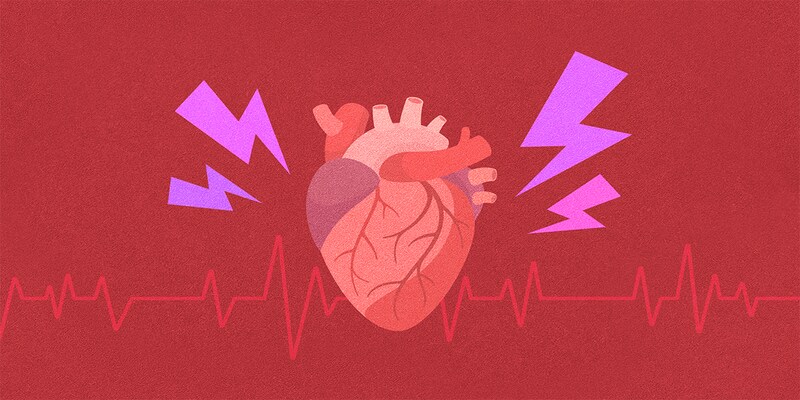Waking up feeling groggy is a frustrating experience that many people face regularly. It's that sluggish start to the day where you struggle to shake off sleepiness and get energized. While many factors can contribute to morning grogginess, one often overlooked reason is nutrition.
What you eator don't eatcan significantly affect how well you sleep and how you feel when you wake up. In this article, we'll explore the connection between your diet and your morning energy levels and provide practical tips to help you start your day feeling refreshed.
The Connection Between Nutrition and Sleep
To understand how nutrition affects your sleep, it's important to first look at how your body uses nutrients. Your body needs a balance of carbohydrates, proteins, fats, vitamins, and minerals to function optimally. This balance plays a crucial role in regulating your sleep patterns and overall energy levels.
Carbohydrates and Sleep Quality
Carbohydrates are a key player in your sleep cycle. They help regulate the production of serotonin, a neurotransmitter that influences sleep and mood. Eating complex carbohydrates, like whole grains and vegetables, can improve sleep quality by maintaining stable blood sugar levels. On the other hand, consuming simple carbohydrates, such as sugary snacks and refined grains, can lead to blood sugar spikes and crashes that disrupt sleep.
Proteins and Energy Levels

Proteins are essential for repairing and building tissues, including those in your brain. Consuming adequate protein throughout the day can help maintain stable energy levels and prevent feelings of grogginess. However, eating a large amount of protein right before bed may interfere with your sleep. Its best to focus on balanced meals throughout the day rather than heavy, late-night protein consumption.
Fats and Hormonal Balance
Healthy fats, such as those found in avocados, nuts, and olive oil, are important for maintaining hormonal balance. Hormones like melatonin and cortisol regulate your sleep-wake cycle. Including healthy fats in your diet can support the production of these hormones and help you wake up feeling more rested.
Vitamins and Minerals
Certain vitamins and minerals play a direct role in sleep quality and energy levels. For instance, magnesium helps relax muscles and calm the nervous system, promoting better sleep. Vitamin D, often acquired from sunlight and certain foods, also regulates sleep patterns. Ensuring that you get enough of these nutrients can help improve both your sleep and your morning alertness.
How Poor Nutrition Leads to Grogginess?
When your diet lacks essential nutrients, it can lead to various issues that affect your sleep and how you feel in the morning. Here are a few ways poor nutrition can contribute to waking up groggy:
Blood Sugar Imbalances
A diet high in refined sugars and low in fiber can lead to unstable blood sugar levels. This instability can cause restless nights and frequent waking. When your blood sugar levels drop during the night, your body may wake up feeling groggy or tired.
Nutrient Deficiencies
Deficiencies in key nutrients like magnesium, calcium, or vitamin D can lead to poor sleep quality and fatigue. Without these essential nutrients, your body struggles to regulate sleep patterns and recover properly during the night.
Poor Eating Timing
Eating large or heavy meals close to bedtime can disrupt your sleep. Your body needs time to digest food before it can fully relax and enter a restful sleep state. Late-night eating can lead to indigestion and discomfort, which in turn affects your sleep quality and makes you feel groggy in the morning.
Improving Morning Energy Through Better Nutrition
If you want to wake up feeling refreshed, consider making these dietary adjustments:
Opt for Balanced Meals
Focus on balanced meals throughout the day that include a mix of proteins, complex carbohydrates, and healthy fats. This balance helps regulate your blood sugar levels and supports overall energy. For example, a breakfast of oatmeal topped with nuts and berries provides sustained energy without causing blood sugar spikes.
Include Sleep-Promoting Foods
Certain foods can promote better sleep. Try incorporating foods rich in tryptophan, such as turkey, bananas, and dairy products, into your diet. Tryptophan is an amino acid that helps the body produce serotonin and melatonin, both of which are important for sleep.
Avoid Late-Night Snacking

Try to finish eating at least two to three hours before you go to bed. This allows your digestive system to process food properly and helps prevent sleep disruptions. If youre hungry before bed, opt for a small, easily digestible snack like a handful of almonds or a piece of fruit.
Stay Hydrated
Proper hydration is crucial for overall health and well-being. Dehydration can lead to fatigue and grogginess. Drink enough water throughout the day, but try to limit fluids close to bedtime to avoid waking up for bathroom trips during the night.
Creating a Balanced Diet for Better Mornings
Start by making small changes to your eating habits and gradually incorporate more sleep-promoting foods into your meals. Here are some simple steps to get started:
Plan Your Meals
Plan your meals to include a variety of nutrients and avoid skipping meals. A well-rounded diet provides the necessary nutrients to keep your body functioning properly and supports better sleep.
Track Your Diet
Consider keeping a food diary to track what you eat and how it affects your sleep and energy levels. This can help you identify patterns and make adjustments as needed.
Conclusion
Waking up feeling groggy can be a sign that your body is not getting the right nutrients it needs to function optimally. By paying attention to your diet and making informed choices about what you eat, you can improve your sleep quality and start your day feeling more refreshed. Remember that nutrition is just one piece of the puzzle; maintaining a healthy lifestyle, including regular exercise and good sleep hygiene, is also crucial for overall well-being.







